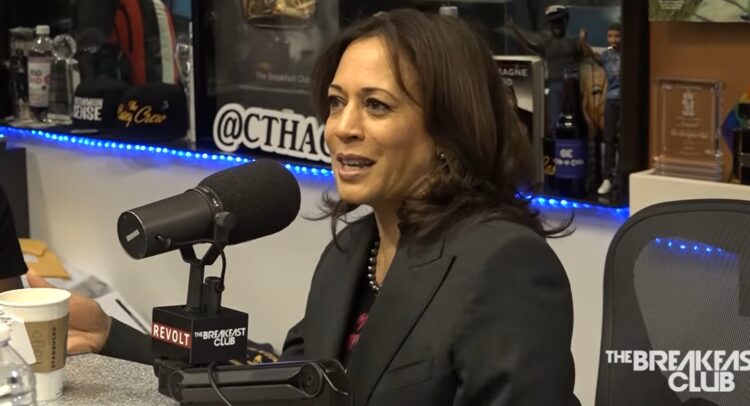Kamala Harris’ position on marijuana has evolved from her days as a tough-on-criminals prosecutor to her current position supporting cannabis legalization. Her history as a former Attorney General of California who opposed her state’s Proposition 19, a ballot initiative aimed at legalizing the substance, to her position today will likely help spotlight the inevitability of marijuana legalization while on the debate stage and campaign trails. This heightened public discourse can only be seen as positive to the growth of the cannabis industry.
Elevate Your Investing Strategy:
- Take advantage of TipRanks Premium at 50% off! Unlock powerful investing tools, advanced data, and expert analyst insights to help you invest with confidence.
From Opposition to Advocacy
It was 14 years ago, in 2010, that Harris stood in opposition to California’s Proposition 19 to legalize weed. Then, by 2015, she was an advocate of legalization. In fact, she quite publicly, during the Democratic State Convention, called for an end to the federal ban on medical marijuana. This marked a significant shift from her earlier position. Moreover, in 2016, California voted to legalize recreational marijuana, but then-Attorney General Harris did not take a public stance on recreational use. However, her evolving viewpoint became more apparent in subsequent years.
Advocacy and Personal Experience
In 2019, Harris made headlines during an interview with The Breakfast Club, a radio show that airs in over 90 radio markets around the U.S. On the show, in a discussion with host Charlamagne tha God, Kamala expressed her support for cannabis legalization and even admitted to having smoked marijuana in college.
The candid admission has been viewed as highlighting her personal connection to the issue and underscoring her commitment to reform. That same year, in her book, she advocated for the legalization of marijuana and the expungement of nonviolent marijuana-related offenses.
Legislative Actions and Support
Legislative actions by Harris further solidified her pro-cannabis stance. She co-sponsored several key bills aimed at reforming cannabis laws. These include the SAFE Banking Act, which seeks to provide financial services to cannabis businesses, the Marijuana Justice Act, aimed at addressing racial disparities in cannabis enforcement, and the MORE Act, which proposes to decriminalize marijuana at the federal level.
Impact on the Cannabis Industry
Harris’ support for marijuana legalization is a positive development for the cannabis industry. Her advocacy aligns with the broader push for cannabis reform in the U.S. Currently, marijuana is classified as a Schedule I substance under the Controlled Substances Act, placing it alongside drugs considered to have a high potential for abuse and no accepted medical use. This classification imposes significant regulatory burdens on the cannabis industry.
As Vice President, Harris has urged the Department of Health and Human Services and the Department of Justice to reclassify marijuana to a less dangerous category. She has called the current classification “absurd and unfair.” While running for the presidency, and if elected, Harris is likely to continue pushing for cannabis reform, which could lead to significant regulatory changes. This would benefit cannabis companies by easing tax burdens and opening up access to banking services.
Public Support and Market Potential
The majority of Americans now support federal marijuana legalization. This current shift in public opinion bodes well for Harris’ pro-cannabis stance. Presidents have great power to set legislative agendas, and her presidency could expedite the process of legalization and create a more favorable regulatory environment for cannabis companies. With her in the race, the potential for market growth is substantial as legal hurdles continue to move aside, causing the cannabis industry to expand.
Key Takeaways
Kamala Harris’ journey from a tough-on-crime prosecutor to a pro-cannabis advocate reflects a significant evolution in her stance on marijuana. Her personal admissions and legislative actions demonstrate a strong commitment to cannabis reform. This is a positive signal for the cannabis industry, which stands to benefit from regulatory changes and increased market opportunities.
If elected president, Harris’ continued support for cannabis legalization could make room for further industry growth and transformation. Investors should keep a close eye on her campaign and potential presidency, as her policies could have a substantial impact on the future of the cannabis market.
















